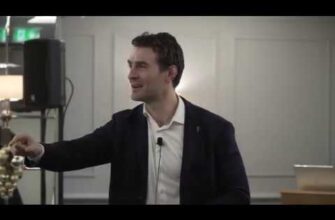I am deviating today from my typical here-are-some-solutions article to pose a question. On the Nerdist podcast, Chris Hardwick and Andy Samberg were discussing the impact of social media. With the constant stream of information, they agreed that the lifecycle of a story is less than a week. After that, people move on to the next event.
The conversation then moved into how they protect themselves from the barrage of hateful comments that are so pervasive on Twitter, Facebook, and nearly every chat board and comment section of a site.
Contents
- Chris: I was talking to [Louis C. K.] about internet stuff and he said, ‘Yeah, if you just don’t go online for a couple of days after something, it’s like it didn’t happen. So I just imagine him in that moment [after delivering a provocative stand up set]; he just shut off everything for a few days and everything’s fine.
- Andy: I did that when I hosted SNL; I just didn’t check for a week.
- C: And it didn’t matter.
- A: A few people said nice things so I was like, ‘It went great.’
- C: By doing that, you really see the power you have in constructing your reality. If you populate your world with all the negative stuff, that’s what will manifest and then it just becomes a perpetual self-fulfilling prophecy machine.
- Share here:
Chris: I was talking to [Louis C. K.] about internet stuff and he said, ‘Yeah, if you just don’t go online for a couple of days after something, it’s like it didn’t happen. So I just imagine him in that moment [after delivering a provocative stand up set]; he just shut off everything for a few days and everything’s fine.
Andy: I did that when I hosted SNL; I just didn’t check for a week.
C: And it didn’t matter.
A: A few people said nice things so I was like, ‘It went great.’
C: By doing that, you really see the power you have in constructing your reality. If you populate your world with all the negative stuff, that’s what will manifest and then it just becomes a perpetual self-fulfilling prophecy machine.
My question is this: How should we filter criticism? I wish it was as easy as Chris and Andy’s solution, but most of us are not in a position to simply turn off the comments. Our critics walk into our office, call us, and send emails; they are not the faceless internet trolls who thrive on anonymity.
So ignoring the comments is not the answer…nor should it be. Many critiques are beneficial – they show us how we can make our ideas better, indicate flaws in our plans, and can result in a better end result. Plus, our team is not complaining for the sake of complaining. They are discussing topics that have a direct impact on their and the organization’s success, so we need to listen.
At the same time, leadership is not a popularity contest. Some of our decisions will be controversial and in dispute. Even if we were to absorb all the problems, concerns, and issues, that does not mean we would change our stance. And, as Chris said, we should not allow our world to be populated purely by the negative stuff.
Where’s the line between constructing your reality and living in a dream world? If you block out all negativity, you will lose out on constructive criticism. You’ll become more isolated and lose touch with the real world. However, if you allow all criticism to permeate your psyche, you will be in a perpetual state of beating yourself up. Self-doubt will become a constant hindrance in making bold choices.
So we can’t hide from the critiques without missing valuable insights AND we cannot accept all critiques without losing our sanity. Where is the balance? First, we must decide whether we fall more on the “closed” or “open” end of the spectrum. Once we know this, we can inch our way to the middle, wherever that may be. Seek feedback. Ask questions geared towards a productive level of critique. If this doesn’t work, tell you team to send all issues through Twitter; at least this way you can check your account at your leisure.





